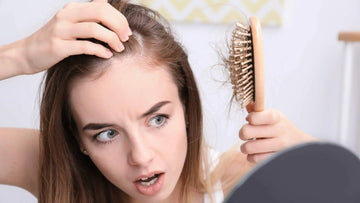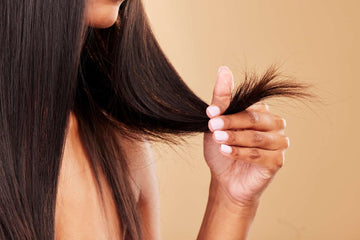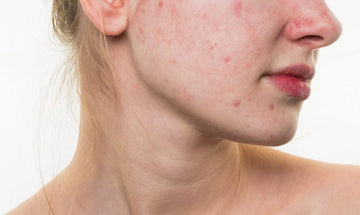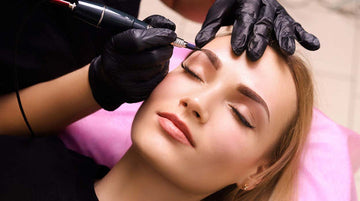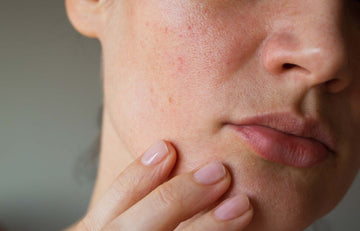Seasonal changes not only impact nature but also bring about noticeable changes in our bodies. One of the most apparent effects of these transitions is hair loss. Many people notice increased hair shedding, especially during autumn and spring. While this phenomenon is usually a natural and temporary process, it can still be distressing. However, with the right care and lifestyle adjustments, seasonal hair loss can be significantly reduced, and your hair can be made stronger and healthier.
In this article, we’ll explore the root causes of seasonal hair loss in detail and share practical strategies to support your hair health. From product selection to nutrition, we’ll cover everything you need to know for resilient, healthy hair during seasonal transitions. Let’s dive into the journey of strengthening your hair against seasonal challenges.
What Causes Seasonal Hair Loss?
Seasonal hair loss is usually not a cause for major concern, but understanding the underlying reasons can help you manage it more effectively. There are a few primary factors behind increased hair shedding during seasonal transitions.
Changes in Sunlight Exposure
Changes in sunlight exposure directly impact hair follicles. During the summer months, hair is exposed to more intense sunlight, and as autumn arrives, hair follicles may enter a resting phase, leading to increased shedding. Additionally, Vitamin D deficiency, which is common in autumn and winter, can further contribute to hair loss.
Temperature Fluctuations
Temperature fluctuations disrupt the balance of the scalp. Sudden drops or rises in temperature can dry out the scalp and weaken hair follicles. In colder weather, insufficient moisture can cause hair strands to become brittle and prone to breakage.
Hormonal Fluctuations
Hormonal fluctuations also play a significant role in seasonal hair loss. Seasonal changes can affect the body's hormonal rhythm, causing shifts that may lead to increased shedding. This effect is often more pronounced in women.
Understanding these factors is the first step in effectively managing and reducing seasonal hair loss.
Nutrition Habits That Support Hair Health
The foundation of strong and healthy hair lies in a balanced diet. Hair follicles require the right vitamins, minerals, and nutrients to remain healthy and resilient. Nutrition plays a crucial role in fighting seasonal hair loss.
Protein is the building block of hair. Consuming sufficient protein strengthens hair strands and reduces breakage. Eggs, chicken, fish, and legumes are excellent sources of protein.
Iron helps transport oxygen to hair follicles. Iron deficiency can lead to increased hair shedding. Include iron-rich foods like spinach, red meat, and lentils in your diet.
Biotin (Vitamin B7) is essential for hair growth. Almonds, walnuts, and avocados are great sources of biotin and can strengthen hair follicles.
Omega-3 fatty acids nourish the scalp and prevent dryness and itching. Salmon, flaxseed, and chia seeds are excellent sources of omega-3.
Additionally, staying hydrated is essential for hair health. Drinking enough water daily helps maintain the scalp’s moisture balance and prevents hair from becoming dry and brittle.
Incorporating these nutrients into your diet will make your hair more resilient to seasonal changes.
Use the Right Hair Care Products
Choosing the right hair care products can make a significant difference in combating hair loss. Every hair type has unique needs, and selecting suitable products helps address these requirements effectively.
When washing your hair, choose sulfate-free shampoos. Sulfates can strip the scalp of its natural oils, leading to dryness and increased hair fall. Natural ingredient-based shampoos maintain the scalp’s natural balance while gently cleansing the hair.
Conditioners and hair masks help hydrate and strengthen hair strands. Applying a deep conditioning hair mask once a week can repair damaged hair and reduce breakage.
Scalp massage is another essential habit. Regular scalp massages improve blood circulation, helping hair follicles receive the nutrients they need.
When selecting hair care products, pay attention to their ingredients and suitability for your hair type. You can explore options in the Hair Treatments collection to enhance your hair care routine.
Lifestyle Changes to Reduce Hair Loss
Supporting your hair health isn’t limited to products; it’s also about adopting healthy lifestyle habits. Paying attention to your daily routine can significantly reduce hair loss.
First and foremost, manage your stress levels. Stress is one of the leading causes of hair loss. Techniques like yoga, meditation, or breathing exercises can help reduce stress and promote overall well-being.
Get enough sleep. During sleep, the body undergoes repair and rejuvenation processes, including hair follicle renewal. Maintaining a consistent and high-quality sleep schedule supports hair health.
Avoid hairstyles that pull your hair too tightly, as well as excessive heat styling. These practices can damage hair strands and contribute to breakage and hair loss.
Additionally, limit exposure to harsh weather conditions. Use protective products during extreme cold or hot weather to maintain scalp and hair health.
Don’t Hesitate to Seek Professional Help
If your hair loss persists despite proper care and lifestyle changes, consulting a professional is essential. A dermatologist or hair care specialist can perform a detailed scalp and hair analysis to identify the root cause of the problem. Based on the results, they can recommend suitable treatments or products to address your specific needs.
Professional guidance can make a significant difference, especially if your hair loss is caused by underlying health issues.
Strengthen Your Hair Against Seasonal Changes
Seasonal hair loss is a common concern, but it doesn’t have to be a permanent problem. With the right hair care routine, a balanced diet, and healthy lifestyle habits, you can reduce hair shedding and enjoy strong, vibrant hair year-round.
Remember, consistency is key. Healthy hair isn’t achieved overnight; it requires patience and care. Pay attention to your hair’s needs, choose products that support its health, and don’t shy away from seeking expert advice when necessary.
By taking the right steps today, you can ensure that seasonal changes no longer pose a challenge to your hair health. Healthy, strong hair is always worth the effort!
